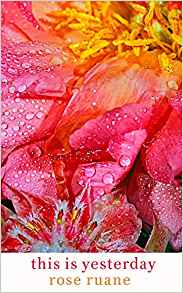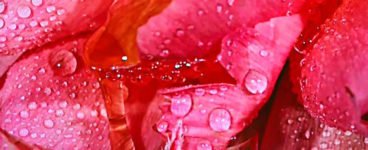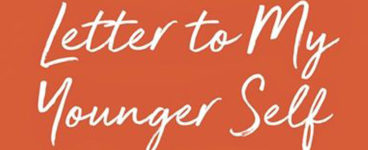‘Meticulously, they avoid reminiscence.’
Rose Ruane’s debut novel, This is Yesterday, tackles how women define and express themselves, the consequences of both action and inaction, and the soul-fatigue caused by carrying around baggage from the past. Lee Randall reviews and finds a novel with much emotional resonance.
This is Yesterday
By Rose Ruane
Published by Corsair
Billed as a story ‘of a woman’s relationship with her art, her body and desires, her memories, herself,’ Rose Ruane’s debut novel, This is Yesterday, mines themes familiar to fans of her previous work across a range of media (performance, sculpture, drawing, video, and writing). These include emotional manipulation, self mythology, and the idea that a part of us never entirely grows up.
Here, Ruane probes questions that are certain to resonate with contemporary readers: Who has the ‘right’ to create art? Is there a statute of limitations on mistakes made in youth? Whose version of history is the version? Is anyone truly unloveable? If we lack purpose—any kind of purpose—what’s life for?
The novel kicks off with an abrupt wake-up call: ‘The phone ringing in the dead of night can only mean sex or something terrible. Or maybe both. Even in the deep sludge of sleep her body registers shock. Cold sweat and a kick in the chest.’ Peach is summoned to a hospital where her elderly father, suffering from Alzheimer’s, lies in intensive care, badly injured after being struck by a car.
We’re plunged into a family drama seen from Peach’s perspective. We discover she and her older sister, Bella, haven’t been alone together in 25 years. They are apparent opposites: Bella’s a mildly famous internet lifestyle guru, married to a man Peach disdainfully labels ‘part sperm donor, part hedge fund.’ They have twin daughters and financial security.
At 43, Peach knows what she doesn’t want, but has been less successful in identifying and achieving her heart’s desires. Her whole life ‘has felt like grieving for a better person she never became. . . . Peach never wanted to be called wife, she never wanted to be called Mum; but she always wanted to be called important.’
She has abandoned a promising career in fine art photography, ‘dumping art before it had a chance to break up with her.’ For a decade she’s worked as the gallery assistant for a man who ‘spends the first hour of his day doing yoga and meditating and the next eight throwing tantrums a two-year-old would consider needlessly dickish.’ Where Bella is beautiful and glossy, Peach is perpetually disheveled, seen swiping at the red wine stains peppering her coat as she tumbles into the ICU.
They are joined by younger brother Greg, an outdoors-loving, ‘adequate and practical’ bloke who has been most actively—and resentfully—dealing with their father’s increasing incapacity. Eventually their mother and her second husband arrive, rounding out the family unit and ratcheting up the tension.
Peach is ready for a rapprochement; she longs for one, but the siblings instantly fall into familiar patterns—all angles and sharp corners, glancing off each other without connecting, too afraid to speak honestly. This depiction of the push-pull of familial love/resentment hits the mark.
Push-pull effects characterise the novel overall, seen in the way it ping-pongs between present day and the summer of 1994, the fateful year when long-hidden secrets and sexual tensions crested, then burst like a festering boil, fracturing the family. Everyone blames Peach for what happened. She blames herself most of all, and we discover how the burden of guilt corroded her self-esteem, impeding her progress at every level—professionally, emotionally, intellectually.
The push-pull effect is also there in Ruane’s use of language, an unsettling profusion of short sentences and fragments. The narrative judders and jabs. For example: ‘After that they could not fudge and demur. Worst suspicions confirmed. Dad’s dissolution had a name. A prognosis. They gathered round the luminous blue scan as a consultant pointed out dirty thumbprints on the creamy cauliflower of their father’s brain.’
This technique mimics Peach’s inability to focus in the throes of a crisis, her skittish brain obsessively returning to its memory bank, searching for information to help her process how the past led them to this present and how they became the people they are now. Such language recreates the clicking of a camera’s shutter, capturing life in small, frozen bites. It is often distracting and distancing and may frustrate some readers.
Ruane is notably insightful about the female experience of sex, with all its confusion and ambivalence. Describing Peach’s first time, she writes: ‘No, she told herself; I’ve let him start, I’m losing my virginity: it is happening now. I might as well go through with it. She wondered if there was something wrong with her that she should be so practical in the throes of her first fuck.’
Sex and desire are complicated, and Ruane captures the how and why of that perfectly. Peach thinks: ‘All she wanted was for someone to hold her, to make her feel lovely. Not lovely even—just all right, a miracle of sufficiency.’ At various points we see her as both hunter and prey, victim and antagonist. Her vulnerabilities are never far from the surface.’Peach realised he had been checking her out to see if she would do, whereas now he was checking Bella and Magda out so see who he would do. Peach held Nick responsible for the pain of her own crass thoughts.’ And Ruane excels at conveying how women squander themselves emotionally, giving us a satisfying fist-pump of a scene when Peach ends a relationship by calling out her lover’s emotional cowardice.
Ruane’s Peach is someone you’ll want to shake and cuddle, sometimes simultaneously, for This is Yesterday conveys the messiness of real life—as well as its poignancy.
This is Yesterday by Rose Ruane is published by Corsair, priced £14.99
















